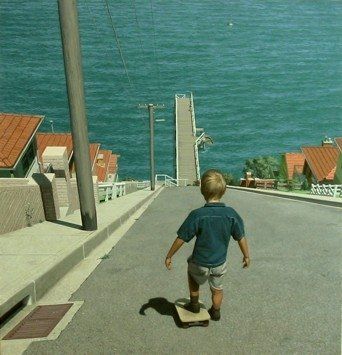Part 7: Epilogue
The illness that was chronicled in the 6-part expose on these pages recently is more or less concluded. I still have a twinge of discomfort from time to time, and I’m not to the point where I’ve started exercising again, but I am free of pain most of the time. I’m supposed to take an anti-inflammatory medication for another month, but it’s a small pill and I forget to take it half the time anyway. Besides, I had my wisdom teeth out two days ago and have other things to think about.
At such a time as this, I find it helpful to pause the normal routine of life for a moment or two and reflect upon the effects (and maybe even benefits) of having been ill. Several effects come quickly to mind, such as gaining 15 pounds, feeling cold all the time, and not having sustained any minor injuries from rough-housing with my children. These are not the ones I’m thinking of though, so I’m going to gloss over them rather quickly. Pause here for glossing. There, that was quick, wasn’t it?
Somewhere around Day 30, someone asked me what they admitted was a stupid question. I mean, he prefaced it as a stupid question, but then proceeded to ask it anyway. This makes me wonder sometimes, though, if, as the saying goes, there are no stupid questions, what sort of questions do stupid people ask? But you needn’t be bothered by the sort of things that keep me awake at night. The actual stupid question was whether I would rather have been healthy and thereby able to execute my responsibilities during the recent weeks, or been ill according to the status quo. Of course, according to the (not really) stupid person’s calculus, any rational, sane person would have chosen to be healthy. But I wasn’t so sure.
I wasn’t so sure then, but I’m positive now. I would much rather have been ill. Had I been healthy and ostensibly executing my responsibilities (they just won’t die!), I would theoretically have missed out on several specific benefits which might not have accrued to me otherwise. In other words, the benefits outweighed the costs. It was worth it. I’d do it again.
Somewhere around Day 17, a friend of mine suggested I read The Practice of the Presence of God, a short book by Brother Lawrence. The essence of the book can be summarized by this quote: “The Time of business, said he, does not with me differ from the time of prayer; and in the noise and clutter of my kitchen (he was a cook) while several persons are calling at the same time for different things, I possess God in as great a tranquility as if I were upon my knees at the Blessed Sacrament.” These were thoughts I had heard before, but this time, these sentiments became a point of demarcation in the illness. No longer was this just some strange illness to endure, or a quirky pain in my chest to annoy me. God had something bigger in mind.
That something bigger was the simple concept of being closer to Him, something I never would have had time for had I been busy scurrying around executing those pesky responsibilities. But He wanted me closer and was willing to strike down my health to get me there. It was a small price to pay for a blessing, the value of which cannot be overstated. The possession of God and more specifically, His presence, despite our physical presence on the heights of the earth or the valley of the shadow of death, is an asset more valuable than anything or anyone else.
The apostle Paul expresses the same sentiments when he writes of “momentary, light afflictions.” That was his description of being beaten, shipwrecked, stoned, and other such encounters most of us would rather avoid. These afflictions, he says, are producing a weight of glory beyond anything else we could imagine. If we really comprehended the beauty of the glory, would we be so quick to avoid the momentary, light afflictions? Not I, for my brief illness has afforded a glimpse into one small aspect of that glory – the beauty of His presence. It should not be so easily traded away for comfort, painlessness, or whatever other accouterments of life we perceive the need for.
This doesn’t mean that the road ahead is nothing but smooth sailing. The long-term diagnosis for ensuring the pericarditis doesn’t return is well nigh unto impossible. It’s not something I can do, yet is something I’m still somehow responsible for. I wonder if the apostle Paul felt the same way, when he sought God for relief from his own impossible situation. But God told him, “My grace is sufficient for you and, furthermore, My power is most effective when you are weak.” Hey, these are encouraging words. I’m okay with being weak, because I’m not the end of the story. Let me see His grace and let us all see His power, and that will be enough for me.



1 Comments:
Wonderful, Brandon. Amen to the work that God has done and is doing!
Post a Comment
<< Home